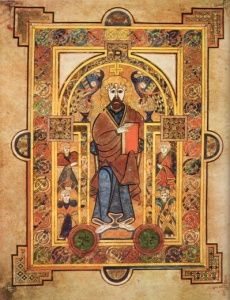The post-modern critics learned one thing well from there modern mentors: to be critics. It seems the modern critical distrust is still present in the post modern except now I apply the skeptical eye of distrust to everyone, including myself. So in this sense, post-modernism might be better termed: late modernism or modernism unleashed. It seems the modern corpus has become a corpse, and we call this dead body post-modernism.
Post-modernism finally stuck the knife in the heart of modernism by taking distrust to the extreme and losing all potentiality of meaning or reality for that matter. In this sense, post-moderns finally freed form from content only to discover that content disappeared, leaving an empty shell of form like a discarded cocoon.
Post-modernism did actually recognize the imperialist tendencies of the modern voice, and so it welcomed other voices to the table. And it served distrust and unbelief to all voices, taking us from one dominating voice to many voices with a dominant insistence that there are no voices.
Post-modernism is more like a magic trick where the assistant in box A reappears in Box B (with a different headscarf). Post modernism rejects one prevailing idea, one prevailing narrative, and seems to affirm all narratives. Now the prevailing “narrative” is that there are “no meta narratives,” resulting of course in one meta narrative. If that didn’t make sense, it’s okay because it doesn’t mean anything anyway.
While I may seem to be hard on post-modernism, I appreciate some of the gifts it has given us. It has suggested there is value in many perspectives, in many voices. It raised the question of meaning. I think it opens the door for a serious consideration of particularity vs universality. And it loves stories. Lots of them. Narrative rhetoric has been a great treasure for the church, helping us to recover the stories beneath layers of moralisms and judgments upon the texts.
Post-modernism is not a project, not a system, not a paradigm, and not a model. It is a series of noises that fill the modern void as we learn to articulate the coming era.
